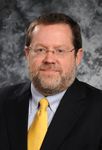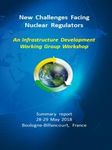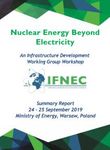International Framework for Nuclear Energy Cooperation - Strengthening our cooperation for a clean, reliable, and resilient energy future
←
→
Page content transcription
If your browser does not render page correctly, please read the page content below
International Framework
for Nuclear
Energy Cooperation
Strengthening our cooperation for a clean,
reliable, and resilient energy futureIFNEC members
34 Participant countries 31 Observer countries
Argentina Korea Algeria Philippines
Armenia Kuwait Bangladesh Qatar
Australia Lithuania Belgium Saudi Arabia
Bahrain Morocco Brazil Singapore
Bulgaria Netherlands Chile Slovak Republic
Canada Niger Czech Republic South Africa
China Oman Egypt Spain
Estonia Poland Finland Sweden
France Romania Georgia Switzerland
Germany Russia Greece Tanzania
Ghana Senegal Indonesia Tunisia
Latvia Turkey
Hungary Sierra Leone
Malaysia Uganda
Italy Slovenia
Mexico Viet Nam
Japan Ukraine
Jordan United Arab Emirates Moldova
Kazakhstan United Kingdom Mongolia
Kenya United States NigeriaEXECUTIVE COMMITTEE
Ministerial-level Officials or Designees
(Rotates annually – 2021)
STEERING GROUP
Aleshia Duncan
Chair
United States
Facundo Deluchi Shi Lishan Takafumi Kakudo Collins Juma Vladimir Artisiuk
Vice-Chair Vice-Chair Vice-Chair Vice-Chair Vice-Chair
Argentina China Japan Kenya Russian Federation
INFRASTRUCTURE DEVELOPMENT WORKING RELIABLE NUCLEAR FUEL SERVICES WORKING NUCLEAR SUPPLIER AND CUSTOMER
GROUP GROUP COUNTRIES ENGAGEMENT GROUP
Zbigniew Kubacki Mike Goff Tomaž Žagar Vladimir Artisiuk Sean Tyson Facundo Deluchi Shi Lishan Takafumi Kakudo
Co-Chair Co-Chair Co-Chair Co-Chair Co-Chair Co-Chair Co-Chair Co-Chair
Poland United States Slovenia Russian Federation United States Argentina China Japan
TECHNICAL SECRETARIAT
OECD NUCLEAR ENERGY AGENCY
Daniela Lulache
Jamelee Bal Clément Bonnay
Head of
Research Officer Research Officer
SecretariatWhat we do Executive Committee Members of the Executive Committee are Ministerial-level officials, it convenes annually and rotates meeting location among IFNEC Participant countries. The host country also serves as the Chair of the Executive Committee meeting. Executive Committee meetings have been hosted and chaired by: Jordan (2010), Poland (2011), Morocco (2012), the United Arab Emirates (2013), Korea (2014), Romania (2015), Argentina (2016), France (2017), Japan (2018) and USA (2019). Due to the COVID-19 pandemic, the 2020 meeting took place virtually. The organization of the 2021 meeting will be determined in June 2021, and Kenya will host and chair the 2022 meeting. Steering Group The Steering Group consists of representatives from all IFNEC member countries and observer organizations. It serves as the highest permanent level, policy-making body, which implements actions on behalf of the Executive Committee and conveys guidance and support to the IFNEC working groups. It is led by a Chair and supported by Vice-Chairs. Infrastructure Development Working Group (IDWG) The IDWG supports the development of the infrastructure needed to ensure that the use of nuclear energy for peaceful purposes proceeds in a manner that is efficient and meets the highest standards of safety, security and non-proliferation. Particular areas of emphasis are: human resource development; radioactive waste management; small modular reactors; nuclear safety and regulation; nuclear security; and, emergency preparedness and response. Reliable Nuclear Fuel Services Working Group (RNFSWG) The RNFSWG supports the co-operation of member countries in their efforts to enhance reliable, commercially based front and back end fuel services that provide options for developing nuclear energy, while reducing the risk of nuclear proliferation. The focus of the work, in recent years, has been on the back end of the nuclear fuel cycle, exploring the issues associated with spent fuel management, storage and disposal. Nuclear Supplier and Customer Countries Engagement Group (NSCCEG) The NSCCEG seeks to analyse the current situation and relationship between supplier and customer countries, establish a common working ground and set up a reliable and trustworthy discussion environment in order to identify, discuss and propose actions to be taken by supplier and customer countries. Work focuses on the following areas: nuclear safety; project development (supply chain issues in particular) and financing; public acceptance and accountability. Technical Secretariat Since 2015, the OECD Nuclear Energy Agency provides Technical Secretariat support to IFNEC, in particular the Steering Group and the Working Groups, by organising and hosting meetings, managing communication and maintaining the IFNEC website at www.ifnec.org. The Technical Secretariat is entirely funded by voluntary contributions from IFNEC members.
Outcomes
Nuclear Energy Beyond Electricity
• The IDWG organized a workshop in September 2019, in Warsaw, Poland, to examine the
contribution of “nuclear beyond electricity”.
• This report summarizes the key discussion outcomes of the 2019 workshop, providing a
concise overview of the potential role of nuclear energy, in non-electric and various
industrial applications.
Addressing the Challenge of Financing
• The Steering Group supported a multi-year effort to examine the current challenges and
opportunities that IFNEC countries face in financing nuclear energy projects.
• IFNEC and the NEA organized jointly a Finance Conference in Paris, France in May 2016 and
published a report that is publicly available on the IFNEC website.
• IFNEC is continuing its work to address the specificities of financing for SMRs and advanced
reactors and is organizing in 2021 a series of webinars on this matter in collaboration with
the Nuclear Energy Agency.
New Challenges Facing Nuclear Regulators
• In May 2018 in France, the IDWG met to discuss new challenges facing nuclear
regulators.
• The objectives of this workshop were to share information on regulatory approaches for
new large reactors (Gen III/III+) by established regulators, as well as new regulators, and
address the challenges in regulating Small Modular Reactors (SMRs).
Global Supply Chain and Localization, Issues and
Opportunities
• An NSCCEG conference, held in November 2017 in Paris, evaluated the supply chain
challenges faced by nuclear technology supplier and customer countries, and their
lessons learnt, as a result of globalization and localization.
Exploring Multinational Solutions to the Back End of the Fuel Cycle
• The RNFSWG began its work on multinational disposal repository options in 2014.
• A 2016 report described the benefits of the Dual Track Approach for the management final
disposal of spent fuel
• A workshop on approaches to finance a multinational repository took place in Paris in
December 2018
• A series of 2020-2021 webinars continue the work in developing strategic management of the
back-end activities of the fuel cycle, including the deep borehole disposal technology and
the multinational radioactive waste management facilities and programs.Upcoming reports
2021 Activities
JUNE – Online
Steering Group Meeting
NOVEMBER – Online
Executive Committee Meeting
Steering Group Meeting
More details of IFNEC’s 2021 activities on IFNEC website.For more information or inquiry about joining IFNEC, visit www.ifnec.org or contact the NEA secretariat@ifnec.org
You can also read



























































